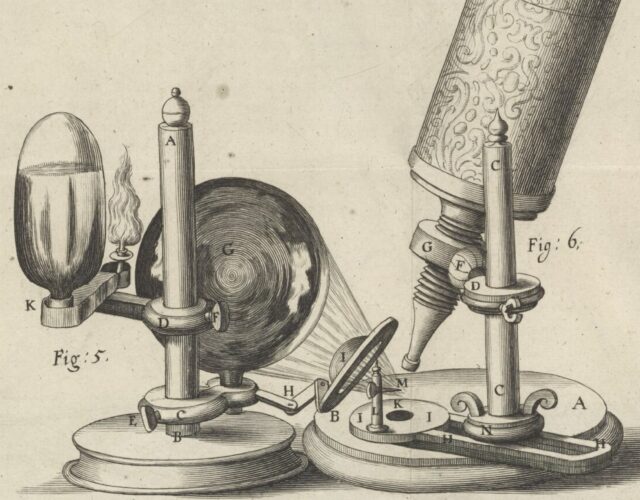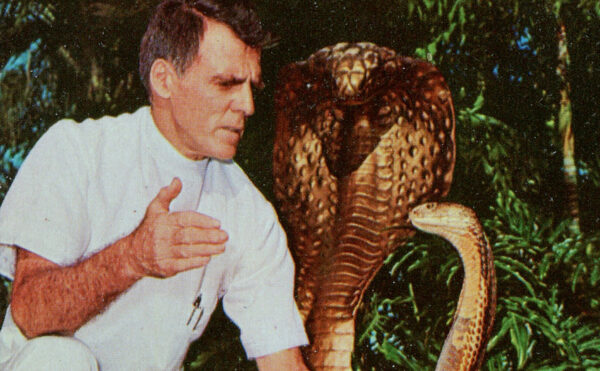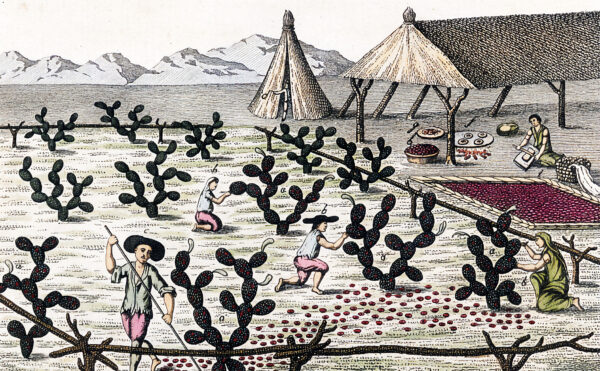Most of the scientific experiments I remember from my grade-school days, and even college, revolved around the production of dramatic visual results: the erupting volcano, the impressive emergence of the black carbon “sugar snake,” and the colorful bacteria colonies growing on my petri dishes. These exciting displays are useful for getting kids excited about learning, but they also represent a deeply embedded emphasis on the visual in modern science. The foundation of much of our scientific knowledge about the natural world, in fact, ultimately rests on what we can see—whether it’s observed with the naked eye or read in the visual output of instruments.
This reliance on the eye as the primary arbiter of truth is nothing new. Author Christine Ammer notes that the expression “seeing is believing” was first recorded in 1639. This same era witnessed a flurry of activity we often call the Scientific Revolution. Advocates of the new science that emerged then, such as Robert Boyle, worked to establish and enforce standards for determining scientific truth. Expert knowledge now relied on producing observable, physical, and reproducible evidence. These articulations of the “new science” sparked notable debates, such as those that swirled around Robert Hooke’s Micrographia—a visual treatise on the microscope and the invisible worlds it revealed. Arguments within the elite community of the Royal Society focused on whether sensory information, particularly sight, ought to be trusted as a reliable source of truth. Ultimately, despite protestations by such natural philosophers as Thomas Hobbes and Margaret Cavendish, the culture of modern science came to embrace experiment, visual observation, scientific apparatus, and exclusivity.
Since today’s science relies so heavily on vision, one might assume that blindness would stop someone from participating in STEM fields. However, individuals with visual impairment have always worked in science, although currently their numbers are low. People with any reported disability make up more than 11% of employed scientists and engineers, while individuals who are blind make up less than 5% of the STEM workforce. Focusing on the experiences of these individuals allows us to reimagine the ways we teach, learn, and do science today.
Judy Summers-Gates, who has had low vision since shortly after her birth, went on a birding adventure with her Girl Scout troop when she was a child. Knowing that her low vision would prevent her from identifying birds alongside her peers, she packed her overnight bag with birdseed instead of camping gear. The next day, while her fellow Scouts traipsed through the forest and left her behind, Summers-Gates sat triumphantly in a meadow surrounded by birdseed and dozens of birds.
But was the knowledge she gathered the same as that of her fellow scouts? Summers-Gates’s alternate approach brought the birds out of their usual daily routines and into proximity with her, where she could still visualize them more or less in the “traditional” way. Summers-Gates’s anecdote suggests how her experience and perhaps the knowledge it produced differed from that of her sighted peers despite her ability to adapt her low vision to fit into the traditional visual culture of STEM.
For Cary Supalo, a blind chemist, the experience of STEM is further distanced from traditional visual culture. After becoming blind at age seven in the early 1980s, Supalo learned to transform information he encountered through touch and hearing into a three-dimensional picture in his mind, an ability he says he always had but that he came to rely on more heavily as a blind person working in science. In biology and physics labs in middle school, Supalo learned through a combination of verbal and “hand-on-hand instruction.” In dissection studies in biology class Supalo didn’t wield the blade, but with a student intermediary he felt the specimens and the structures he was studying with his hands. Along with assistants, teachers, and peers who read him materials, helped conduct lab experiments, and answered questions, Supalo has relied on his ability to do science using his senses of touch and hearing.
The experiences of scientists who are blind or low vision call our attention to the assumptions and biases inherent in modern science. They ask us to think more critically about why we know what we know and to consider the limits to our perception. What possibilities might we be ignoring when we unquestioningly privilege sight as the primary pathway to knowledge about the natural world?




